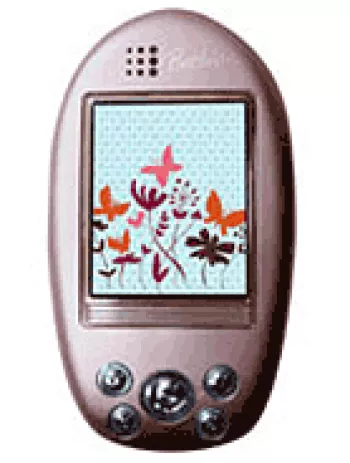
Introduction to Gigabyte GSmart Maya M1 v2
The Gigabyte GSmart Maya M1 v2 is a smartphone that was launched in mid-2013. This device, though discontinued, offered a range of features that appealed to a variety of users. Known for its affordability and decent specifications for the time, it holds a place in the history of early smartphones. In this article, we will explore the in-depth specifications and functionalities of the Gigabyte GSmart Maya M1 v2, touching upon its network capabilities, design, display, performance, cameras, sound, connectivity, battery, and additional features.
Network Capabilities
The Gigabyte GSmart Maya M1 v2 supports GSM and HSPA technologies, catering to both 2G and 3G band users. It includes bands such as GSM 850, 900, 1800, and 1900 for both SIM slots, supporting a dual SIM configuration in Mini-SIM format with dual standby capability. The 3G bands supported include HSDPA 900 and 2100, enabling moderate-speed mobile internet access over HSPA technology.
Design and Build
The smartphone features dimensions of 136 x 67 x 9.7 mm, weighing at 147 g, which provides a comfortable grip and portability. The design accommodates dual SIM functionality, allowing users to maintain two separate lines, which is useful for separating business and personal communications. The phone was available in various colors including Gray, White, and Red, giving consumers options to choose according to their preference.
Display
The device is equipped with a 4.5-inch IPS LCD display, offering a resolution of 540 x 960 pixels with a 16:9 aspect ratio. This amounts to a pixel density of approximately 245 ppi, which provides reasonably sharp visuals for most standard uses such as browsing and media consumption. The screen size and resolution cater to users looking for a compact display that still offers decent clarity.
Performance and Platform
The GSmart Maya M1 v2 operates on Android 4.2.1 Jelly Bean, driven by a Mediatek MT6589 chipset built on a 28 nm process. It houses a quad-core 1.2 GHz Cortex-A7 CPU, accompanied by a PowerVR SGX544 GPU for graphical performance. While the processing power may seem modest by today's standards, it was adequate for basic applications and multitasking when first released.
Memory and Storage
The device comes with 1GB of RAM, which at its time of release was standard for delivering basic multitasking capabilities. It includes 4GB of internal storage, which could be expanded via a dedicated microSDHC slot to accommodate extra data, apps, and media files.
Camera Specifications
On the photography front, the phone is equipped with a single 8 MP rear camera, featuring autofocus and a dual-LED flash for improved low-light performance. The camera can capture video but lacks modern enhancements such as high frame rate recording. The front-facing camera is 2 MP, suitable for basic selfies and video calls.
Sound and Multimedia
The smartphone is fitted with a loudspeaker for media playback and call sound and a standard 3.5mm headphone jack to connect to external audio devices. These features make it practical for audio consumption without needing adapters or wireless connections.
Connectivity Options
Connectivity is made possible through various options including Wi-Fi 802.11 b/g/n with hotspot capability, Bluetooth 3.0, and GPS for location services. The GSmart Maya M1 v2 lacks NFC but offers traditional FM radio and microUSB 2.0 connectivity for data transfer and charging.
Battery Performance
Powering the device is a removable Li-Ion 1700 mAh battery, offering up to 500 hours of standby time and around 4 hours and 30 minutes of talk time. While not particularly large, the battery capacity was typical for devices of that era, providing adequate usage times for moderate daily activities.
Additional Features and Sensors
The phone is equipped with a basic set of sensors including an accelerometer, proximity sensor, and compass. These sensors enhance the interaction experience by enabling functionalities such as screen rotation and navigation assistance. The budget-friendly price of about 200 EUR made it accessible to a broad user base, particularly in markets looking for affordable smartphone solutions.
Conclusion
The Gigabyte GSmart Maya M1 v2, with its range of features, marked a significant role in the smartphone market of its time. With its dual SIM capability, expandable storage, and adequate performance, it served as a reliable choice for users who needed essential smartphone functionality without the price tag of flagship models. Although it has been discontinued, its design and capabilities are remembered by users who favored its balance of cost-effectiveness and utility.
Key Features of Gigabyte GSmart Maya M1 v2
- Network: Supports GSM / HSPA with dual SIM (Mini-SIM, dual stand-by) for flexible connectivity.
- Display: 4.5-inch IPS LCD with a resolution of 540 x 960 pixels, providing clear and vibrant visuals.
- Performance: Equipped with a quad-core 1.2 GHz Cortex-A7 CPU and PowerVR SGX544 GPU for smooth operation.
- Camera: Main camera of 8 MP with autofocus and dual-LED flash for quality photos; 2 MP front camera for selfies.
- Operating System: Runs on Android 4.2.1 (Jelly Bean) offering a user-friendly interface.
- Memory: Comes with 4GB internal storage and 1GB RAM, with support for microSDHC for expansion.
- Battery: Removable 1700 mAh Li-Ion battery, providing up to 500 hours standby and 4.5 hours talk time.
- Connectivity: Includes Wi-Fi, Bluetooth 3.0, GPS, FM radio, and microUSB 2.0.
- Sensors: Features accelerometer, proximity, and compass sensors for enhanced functionality.
Disadvantages of Gigabyte GSmart Maya M1 v2
- Operating system is outdated (Android 4.2.1 Jelly Bean).
- Limited internal storage with only 4GB available.
- Low battery capacity (1700 mAh) resulting in limited talk time (up to 4 hours 30 minutes).
- Low-resolution display (540 x 960 pixels).
- NFC is not supported.
- Bluetooth version is 3.0 which is outdated compared to newer standards.
- Device is discontinued, which might result in lack of support and updates.
- Relatively heavy weight (147 g) for a device with these specifications.



















View Also
More Phones
All Rights Reserved +13665 Phones © Mobilawy 2025
























